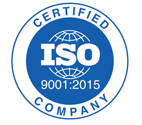The automotive industry has certainly had its share of challenges over the past three years. The COVID-19 pandemic, supply chain issues including parts shortages, higher inflation, and the war in Ukraine have all impacted auto manufacturers to varying degrees. While the industry will be dealing with the ongoing effects from these factors for the remainder of 2023 and likely beyond, it is critical for quality departments to not be overly-distracted by such events which are largely beyond their control. This means remaining laser-focused on risks that, if not addressed properly and timely, can have devastating consequences on a company’s products, financial performance, and reputation. Here are five factors that could pose significant risks impacting quality for auto manufacturers:
- Technology – Advancements in technology are prevalent throughout society, and the auto industry is certainly no exception. From groundbreaking engineering innovations to improved safety features and advanced driver-assistance, technology has been a significant focus. Further, electric vehicles (EVs) are becoming increasingly popular with many predicting in excess of 1 million units will be sold in 2023. The obvious benefits that technology brings is accompanied by growing risks related to potential defects, malfunctions, and/or safety issues, as well as changes to the nature of the workforce and skill sets of employees needed to support the new technologies.
- Labor Shortages – As with many industries, auto has experienced a mass exodus of employees from the workforce in the last few years. Factories have been in a constant struggle to fill shifts, and OEM’s have often been left short-handed as they were trying to ramp up production to pre-pandemic levels. In many instances, this has led to enhanced use of robotics and automation throughout the supply chain process, a trend that is expected to continue. Also, artificial intelligence (AI) has been introduced as another way to help offset the loss of personnel as OEM’s strive to maintain top quality and improve speed to market.
- Supply Chain Issues – Manufacturers are typically very dependent on complex supply chains to source parts and materials. The recent chip shortage has had a rippling effect throughout the industry bringing inventory levels to record lows. The supply of raw materials, such as steel, aluminum and rubber, has become less reliable resulting in longer lead times which hampers just-in-time inventory processes. Any disruptions to the supply chain, including quality inconsistencies, shortages, or delays can have drastic consequences, and therefore mitigation plans for such events need to be discussed and assessed.
- Design Flaws/Production Defects – Errors in the initial design of parts can result in various quality issues throughout all stages of the manufacturing process. Such flaws may relate to safety, critical components, or overall vehicle performance. Meticulous attention to design and craftsmanship, as well as unwavering precision, are the hallmark of automotive quality. Additionally, defects arising during the production or manufacturing process can be damaging if not addressed appropriately. Diligent testing, rigorous quality control protocols, and continuous improvement processes are crucial in ensuring that reliability remains an integral component of automotive quality.
- ESG – Environmental, Social, and Governance (ESG) initiatives are becoming more and more common throughout the manufacturing sector, and automakers are tasked to meet challenging sustainability frameworks. Despite the growing popularity of electric vehicles, ESG remains a difficult area in our industry. Automakers are facing renewed pressures to self-audit and monitor as processes and facilities are under an ever-intensifying microscope. Any issues in this area can bring about harsh scrutiny and should be addressed swiftly and effectively.
Are you interested in learning more?



